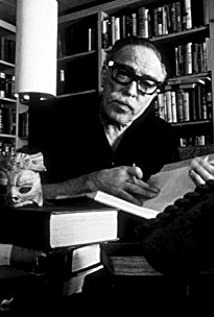Dalton Trumbo
Dalton Trumbo, the Oscar-winning screenwriter, arguably the most talented, most famous of the blacklisted film professionals known to history as the Hollywood 10, was born in Montrose, Colorado to Orus Trumbo and his wife, the former Maud Tillery.
Dalton Trumbo was raised at 1124 Gunnison Ave. in Grand Junction, Colorado, where his parents moved in 1908. His father, Orus, worked in a shoe store. Dalton, the first child and only son, was later joined by sisters Catharine and Elizabeth. The young Dalton peddled the produce from his father's vegetable garden around town and had a paper route. While attending Grand Junction High School (Class of 1924), he worked at The Daily Sentinel as a cub reporter. Of his early politics, a much older Dalton Trumbo told how he asked his father for five dollars so he could join the Ku Klux Klan, a mass organization after the First World War. He didn't get the five dollars.
While at university, he realized that his calling was as a writer. He worked on the school's newspaper, humor magazine and yearbook, while also toiling for the Boulder Daily Camera. He left school his first year to follow his family to Los Angeles. The family moved due to financial difficulties after his father had been terminated by the shoe company. In L.A., Dalton enrolled at the University of Southern California but was unable to complete enough credits for a degree. Orus Trumbo died of pernicious anemia in 1926, and Dalton had to take a job to become the breadwinner for his widowed mother and two younger sisters. Dalton Trumbo took on whatever jobs were available, including repossessing motorcycles and bootlegging, which he quit because it was too dangerous. Eventually, Trumbo took a job at the Davis Perfection Bakery on the night shift and remained for nearly a decade. Trumbo continued to write, mostly short stories, becoming more and more anxious and eventually desperate to leave the bakery, fearing that he would never achieve his destiny of becoming an important writer. During this time, he sold several short stories, written his first novel and worked for the "Hollywood Spectator" as a writer, critic and editor. His work also appeared in "Vanity Fair" and "Vogue" magazines. Trumbo's first novel, "Eclipse" (1934), was set in fictional Shale City, Colorado (a thinly veiled Grand Junction) during the 1920s and 1930s, with characters who resembled notable community members. One of its main characters, John Abbott, is modeled after Trumbo's father. Dalton had tried, perhaps unfairly he admitted later, to avenge his father on the town where he had failed.
In 1934, Warner Bros. hired Trumbo as a reader, a job that entailed reading and summarizing plays and novels and advising whether they might be adapted into movies. It lead to a contract as a junior screenwriter at its B-pictures unit. In 1936, the same year he of his first screen credit for the B-move Road Gang (1936), Trumbo met his future soulmate Cleo Fincher and they married two years later. Daughter Nikola was born in 1939 and son Christopher in 1940. A daughter was added, Mitzi, the baby of the family.
He wrote the story for Columbia's Canadian-made Tugboat Princess (1936), clearly influenced by Captain January (1936), which had been made into a silent in 1924 before being remade with superstar Shirley Temple, substituting a tugboat in the original with a lighthouse. His screenplays for such films as Devil's Playground (1937) showed some concern for the plight of the disenfranchised, but the Great Depression still existed, and social commentary was inevitable in all but fantasies and musicals.
After leaving Warners, he worked for Columbia, Paramount, 20th Century-Fox, and beginning in 1937, M.G.M., the studio for which he would do some of his best work in the 1940s. By the late 1930s, he had worked himself up to better assignments, primarily for RKO (though he returned to Warners for The Kid from Kokomo (1939)), and was working on A-list pictures by the turn of the decade. He won his first Oscar nod for RKO's Kitty Foyle (1940), for which Ginger Rogers won the Academy Award for best actress as a girl from a poor family who claws her way into the upper middle class via a failed marriage to a Main Line Philadelphia swell.
By the time of America's entry into World War II, Trumbo was one of the most respected, highest paid screenwriters in Hollywood. He had also established a name for himself as a left-wing political activist whose sympathies coincided with those of the American Communist Party (CPUSA), which hewed to the line set by Moscow.
Trumbo was part of the anti-fascist Popular Front coalition of communists and liberals in the late 1930s, at the time of the Spanish Civil War. The Popular Front against Nazism and Fascism was been torn asunder in August 1939 when the USSR signed a non-aggression pact with Nazi Germany. Many party members quit the CPUSA in disgust, but the true believers parroted the party line, which was now pro-peace and against US involvement in WWII.

